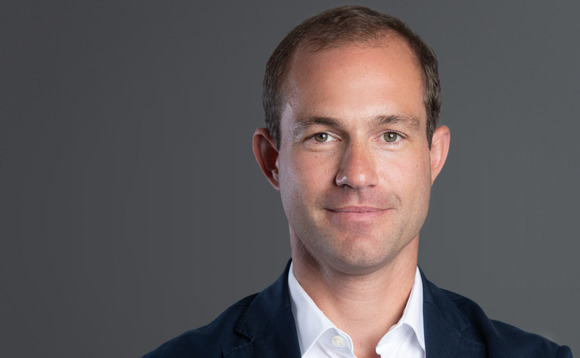
GP Profile: Energy Impact Partners

As the energy-focused impact investor develops its European division, EIP managing partner Matthias Dill discusses the firm's origination network, its sector focus, and impact investing in a more competitive era. By Katharine Hidalgo
Founded in 2015, Energy Impact Partners (EIP) has raised a series of flagship equity funds. The firm provides corporate venture investing in companies and infrastructure through a credit and equity strategy. Its latest fund raised $531m in 2018 and has made a number of investments across the US and Canada. The firm also had access to $150m in debt from the US Small Business Administration under EIP's Energy Impact Credit Fund.
"We have had interest from industrial players that care about the energy transition, financial partners, and growing interest from the ESG community, which sees profit and impact go hand-in-hand," says Matthias Dill, a Cologne-based managing partner at EIP.
It is unclear whether the European division of EIP will be investing from the US-based flagship fund or if the firm will raise a Europe-dedicated vehicle, but, to date, the firm has made three investments in Europe: Estonia-based Rangeforce, Norway-based Esmart Systems and Netherlands-based ViriCiti.
Prior to building EIP's European presence, Dill was the founder and managing director of Statkraft Ventures, a €100m European VC fund focused on the energy sector. He designed and executed investments to realise synergies between startups and renewable energy giant Statkraft. Earlier in his career, Dill was a senior investment manager with High-Tech Gründerfonds.
"Europe is the perfect region to expand into now," he says. "Renewable technologies are growing and spreading, and there is a strong push and stimulus from policymakers. It is an exciting region, with a lack of sector-focused investors and an advanced entrepreneurial ecosystem." In Norway, 50% of vehicles are electric, while in Denmark, renewable energy generation makes up more than 50% of the grid, representing a critical mass of industry, according to Dill. Many market participants predict these types of changes will spread throughout Europe during the coming years.
EIP's series-B-focused team will offer equity tickets of €5-20m and will always take lead positions. "When startups start scaling up in Europe, you do not find many investors looking at the €10-20m range," says Dill. The firm's initial investment strategy focused on investing in energy, but it has broadened to smart cities and homes, electric vehicles, electric transportation, and even cybersecurity, which Dill says is vital to society becoming more sustainable.
Europe is the perfect region to expand into now. Renewable technologies are growing and there is a strong push and stimulus from policymakers" – Matthias Dill, Energy Impact Partners
EIP has approached its prioritisation of different sectors mathematically and ranked its interest on an ascending scale of 1-5. For example, companies in the electric vehicle charging infrastructure sector sit in the fourth bracket, while residential efficiency financing companies sit in the third bracket.
An investment priority for the firm would be a company in the highest bracket of EIP's methodology, with a projected rate of return of 3x money. While sector specialisation is key to the firm's strategy, Dill says: "Sometimes having a sector understanding is not enough. You need to understand how your startup interacts with the incumbent." The firm is currently carrying out due diligence on five deals in sectors such as electric mobility and in the broader ESG space.
Origination fever
Dill considers the firm's origination capabilities to be essential to its success. He says: "Our origination approach is a value-creation engine for our platform. We have a research team on our payroll that helps generate a list of businesses and is very theme driven. Our deal-sourcing engine generated more than 1,400 deals last year, half of which is proprietary. We were able to find Rangeforce through this network when it was not really fundraising."
The firm invested in the cybersecurity training firm in July 2020. Founded by Estonia's Taavi Musk, Rangeforce marked EIP's fifth investment in the sector in the past three years.
Dill says that, as a result of its origination technology, EIP has little competition from other funds for deals. "Around 55% of our dealflow is proprietary, so we have very different conversations, usually leading to much more favourable deal terms," he says. "We are open-minded about co-investing with peers, but we are always careful to make sure they are a similar pedigree of investor as us."
Impact has drawn growing interest from institutional investors. In 2019, there were more than 1,340 impact investing organisations managing $502bn, according to the Global Impact Investing Network, more than double the previous year's total assets under management.
When discussing new competitors, Dill says: "I would be concerned about an incomplete view on ESG investing creating inflated expectations. This sector is difficult and what I would hate to happen is for too many people to jump on the topic with ill-fitting strategies, as this could lead to impatience and disappointment. It is important to take an expert approach and a long-term view."
Latest News
Stonehage Fleming raises USD 130m for largest fund to date, eyes 2024 programme
Sponsor acquired the public software group in July 2017 via the same-year vintage Partners Group Global Value 2017
Stonehage Fleming raises USD 130m for largest fund to date, eyes 2024 programme
Czech Republic-headquartered family office is targeting DACH and CEE region deals
Stonehage Fleming raises USD 130m for largest fund to date, eyes 2024 programme
Ex-Rocket Internet leader Bettina Curtze joins Swiss VC firm as partner and CFO
Stonehage Fleming raises USD 130m for largest fund to date, eyes 2024 programme
Estonia-registered VC could bolster LP base with fresh capital from funds-of-funds or pension funds









